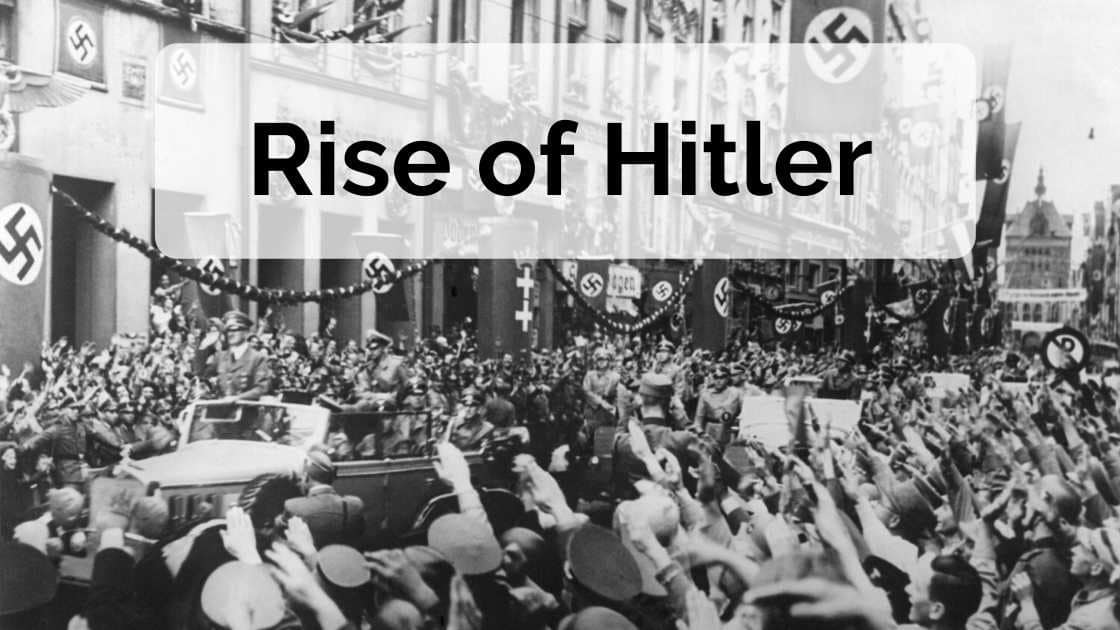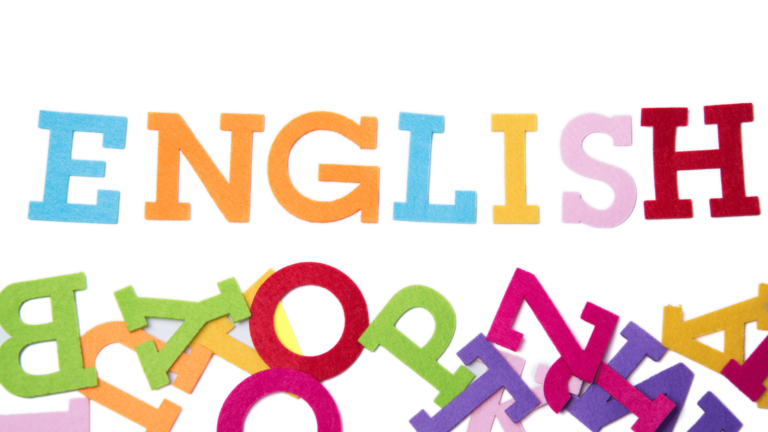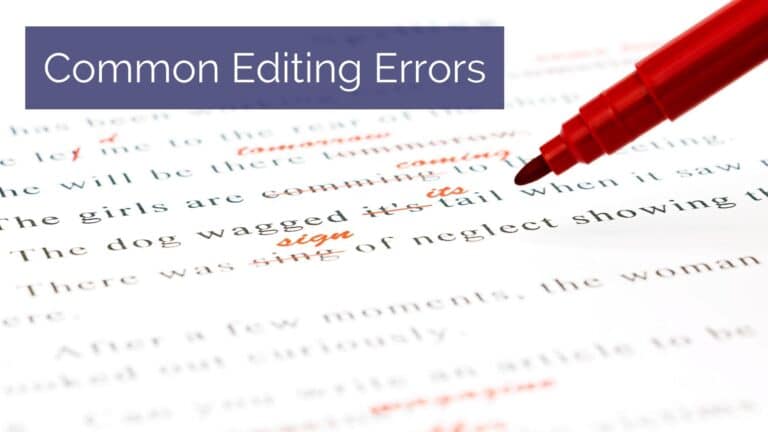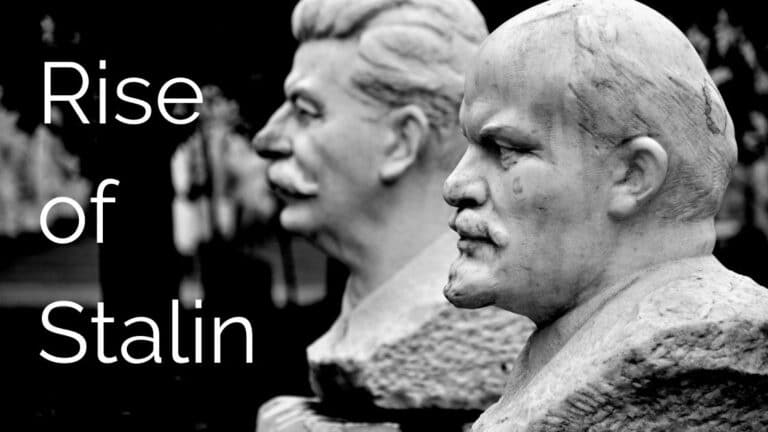Rise of Hitler: 5 SEQ Samples
The rise of Hitler is a well-known historical event. After all, he is a well-known dictator and mass murderer. Unfortunately, he continues to fascinate many people decades after his death. Hence, we still study the rise of Hitler for O level History.
Just like the previous part of this series, I have 5 sample Structure Essay Questions. Just like previous articles, these sample essays are not for memorisation. They are meant as a reference for students on how these questions can be answered. You can download the pdf below.
1. Explain how Hitler was able to become Fuhrer.
(P) Hitler was able to become Fuhrer because of the Reichstag Fire.
(E) In February 1933, an unknown person set the German parliament building on fire. As a result, President Hindenburg granted Hitler emergency powers to stabilise the situation. Hitler immediately blamed it on the communists and used this opportunity to suspend civil liberties. He attacked the communist party by arresting them and breaking up their meetings.
(E) Thus, the communists could not campaign for the March 1933 elections and were excluded from the Reichstag. With this, he had eliminated his most potent political opponent, and no single party could secure a majority during the March elections.
(L) The Reichstag Fire gave Hitler the chance to destroy his greatest opponents and paved the way for him to slowly but steadily consolidate power.
(P) The Enabling Act also allowed Hitler to become the Fuhrer.
(E) The March 1933 elections ousted the communists. Hitler’s Nazi Party thus held a majority in the Reichstag. Accordingly, he called upon the Reichstag members to vote for the Enabling Act. The Act granted him the ability to pass laws without the President’s approval.
(E) With the emergency powers coupled with the Enabling Act, it was enough to transform Hitler’s government into a legal dictatorship. The Nazi Party became the only legal party, and they enforced a one-party rule in Germany.
(L) With no opposition, Hitler moved one step closer to becoming Fuhrer.
2. Explain how the Great Depression helped Hitler rise to power.
(P) The Great Depression helped Hitler rise to power because it caused an economic crisis in Germany.
(E) For example, factories closed down, and poverty, homelessness, and starvation were commonplace. By 1932, 6 million people, or one-third of the working population, were unemployed.
(E) The Great Depression made people desperate for a leader who had a clear plan to help Germany out of its depression. As a result, Hitler’s Nazi Nazi ideology appealed to the Germans despite its radical ideas, enabling him to gain power.
(L) Thus, the Great Depression helped Hitler gain power as it caused an economic crisis in Germany.
(P) The Great Depression also helped Hitler rise to power because it painted the Weimar Government negatively and created a political crisis.
(E) For example, the coalition government could not decide how to resolve the economic crisis, and no government had enough support in the Reichstag to pass laws.
(E) This means that the Great Depression helped Hitler gain power as Germans grew dissatisfied and angry at the government and more likely to support extreme parties like the Communist Party and Nazi Party.
(L) Thus, the Great Depression helped Hitler gain power as it caused a political crisis in Germany.
3. “Hitler’s rise to power was the result of the weakness of the Weimar government.” How far do you agree with this statement? Explain your answer.
(P) Hitler’s rise to power resulted from the weakness of the Weimar government.
(E) The Weimar government lacked strong support from the people, politicians and soldiers. For example, in 1920, right-wing extremists attempted to overthrow the government in the Kapp Putsch. Therefore difficult for the Weimar government to gain their support and loyalty. Thus, it remained weak and struggled to hold on to power and authority.
Furthermore, Germany struggled with poverty, high unemployment and a fragile economy. The reparation payments were very unpopular, and the government kept up with the expenses by printing more money. The money printing flooded the economy and led to hyperinflation, and it caused the Weimar government to lose the support of the middle and lower-middle classes.
(E) The people felt that the government was incapable and unable to look after the needs of the people. Therefore, people became disillusioned with the government and withdrew their support for the government. So the Germans supported Hitler as they believed that the Nazi government would make a better government compared to the Weimar government.
(L) Thus, the weakness of the Weimar government led to the rise of Hitler.
(P) However, there are other reasons why he rose to power, such as his charisma and rhetorical skills.
(E) Hitler was a powerful speaker and confident communicator. He believed it was his mission to rule not only Germany but the world. He was a true orator who prepared and practised his speeches. Hitler had a gift for public speaking. He was able to move people with his emotions and arouse their feelings with his words and voice.
(E) People listened to him talk for hours because he seemed to understand their problems. He also told them what they wanted to hear. Thus the people believed in Hitler and supported him and the Nazi party.
(L) Thus, Hitler’s charisma and ability to speak well allowed Hitler to rise to power.
(J) I agreed with the statement as the weakness of the Weimar government provided an opportunity for Hitler to showcase his power and might. If the government was not weak and could provide for the welfare of the Germans, the Germans would not be disillusioned and would not then look for an alternative party to support during election time.
It was also this weakness that Hitler used to make himself and the Nazi party look good to win support. Though he was an excellent speaker, he would not be able to win over the Germans if not for the weakness of the Weimar government.
4. Explain how Hitler used propaganda to control the people in Germany.
(P) Hitler used propaganda to control Germany by setting up a Reich Ministry of Public Enlightenment with Joseph Goebbels as its head.
(E) Goebbels organised public displays of German power in massive rallies, marches, torch-lit processions and public meetings. Goebbels showcased Germany’s might to give Germans a sense of belonging during these enormous propaganda shows by highlighting Hitler as Germany’s ‘saviour’. These shows emphasised Hitler’s contribution to making Germany strong again.
(E) As a result, many Germans believed that Hitler was responsible for the resurgence of Germany as a power. The German people trusted Hitler as a leader.
(L) Hence, Hitler used propaganda to control the people in Germany.
(P) Hitler also controlled people’s access to other forms of information restricted.
(E) For instance, Hitler controlled the media tightly. They were not allowed to print information or commentary that went against Hitler and the Nazi Party. Hitler even burned books to control access to information.
(E) Thus, Germans were only allowed to listen to the ‘right’ content and messages that the Nazi government wanted them to hear, read and see. So the people were biased towards Nazism. Over time, the Germans behaved and thought in ways acceptable to the Nazis. There was blind acceptance of Nazism and unquestioned loyalty and support for the government.
(L) So the Germans were brainwashed to support Hitler, allowing him to control the people in Germany easily.
5. Explain why instability in Germany after World War One contributed to Hitler’s rise to power.
(P) Political instability in Germany after WWI contributed to Hitler’s rise to power because it made Germans lose confidence in the political authority of the Weimar government to govern the country.
(E) The newly established Weimar government struggled to maintain political control over the country. Ordinary Germans perceived the government as weak and ineffective. Hence this weakened their support for the government. As a result, Hitler exploited their fears and gain support for his leadership.
(E) For example, from 1919 to 1922, the Weimar government came under violent attacks from left- and right-wing factions who demanded radical reforms. One attack was the Kapp Putsch in 1920, which consisted of right-wing extremists who wanted to overthrow the Weimar Republic. Another was the Spartacist Rebellion in 1919, where a group of radical socialists organised a general strike against the Weimar government. It was against this political backdrop that Hitler promised to deliver a strong central government, which appealed to the German public.
(L) Hence, political instability exposed the weaknesses of the Weimar government to the public, which allowed Hitler to manipulate the political situation to his advantage.
(P) Economic instability in Germany after WWI contributed to Hitler’s rise to power because it made Germans desperate for more decisive leadership to address the financial crisis.
(E) Post-war Germany struggled with poverty, high employment and a fragile economy. Germany suffered from hyperinflation in 1923, and it also suffered from the effects of the Great Depression in 1929, which caused poverty, homelessness, and starvation. The widespread and prolonged economic instability made the Weimar government appear helpless as they could not improve the situation. As a result, many supported Hitler, who promised to provide employment and ensure economic recovery.
(E) For example, hyperinflation prevented many Germans from affording necessities. In 1919, 1kg of bread was 0.29 marks. By November 1929, it was 428 million marks. With the Great Depression, the economic crisis worsened as factories closed down and millions lost their jobs.
(L) Hence economic instability made Hitler appear to be a better source of leadership to address the financial problems compared to the weak Weimar government.
Conclusion
For more information about the rise of Hitler, this Wikipedia entry is most informative.
You can download a pdf copy of these sample essays below.
This is part of a Structured Essay Question series. To find other parts of this series, click on the list below:
- Treaty of Versailles
- League of Nations
- Rise of Stalin
- Stalin’s Rule
- Hitler’s Rule
- Reasons for World War II in Europe
- Reasons for the Defeat of Germany
- Reasons for World War II in Asia-Pacific
- Reasons for the Defeat of Japan
- Reasons for the Cold War
- Korean War
- Cuban Missile Crisis
- Reasons for the End of the Cold War

Critical Thought English & Humanities is your best resource for English, English Literature, Social Studies, Geography and History.
My experience, proven methodology and unique blend of technology will help your child ace their exams.
If you have any questions, please contact us!







